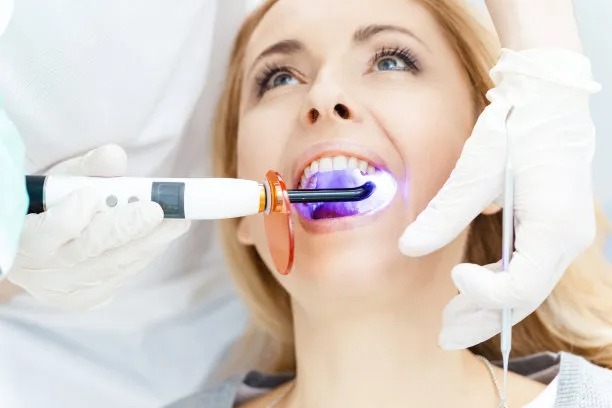Summary: Dental implants have revolutionized restorative dentistry, offering numerous benefits for individuals seeking to enhance their smiles while improving overall oral health. This article explores the advantages of dental implant treatments, including their aesthetic appeal, functional benefits, innovations in technology, and long-term health effects. Additionally, we delve into recent advancements that have made these procedures more accessible and effective than ever before. The insights provided highlight how dental implants can lead to a brighter smile and improved quality of life for patients.
1. Aesthetic Appeal of Dental Implants

One of the most significant benefits of dental implants is their aesthetic appeal. Unlike traditional dentures, dental implants are designed to look and function like natural teeth. The materials used, such as titanium and porcelain, closely mimic the appearance of real teeth, ensuring that the restoration blends seamlessly with the patients smile.
Furthermore, dental implants maintain the natural shape of the face. When a tooth is lost, the surrounding bone can begin to deteriorate, resulting in facial sagging over time. Implants stimulate the jawbone, preserving its density and structure, which contributes to a more youthful facial appearance.
Lastly, the confidence boost that comes with having a complete smile cannot be overstated. Many patients report increased self-esteem and improved social interactions after getting implants, which can significantly enhance their quality of life.
2. Functional Benefits of Dental Implants
Apart from their aesthetic advantages, dental implants also offer substantial functional benefits. They restore chewing efficiency, allowing individuals to eat their favorite foods without discomfort or restriction. Unlike dentures, which can slip or cause irritation, implants are securely anchored in the jaw, providing stability and confidence when eating.
Additionally, implants help maintain the alignment of adjacent teeth. When a tooth is lost, neighboring teeth can shift into the gap, leading to misalignment and further dental issues. Dental implants fill those spaces, keeping the bite properly aligned and reducing the risk of future complications.
Moreover, patients with dental implants often experience improved speech. Missing teeth can affect articulation, leading to challenges in communication. With implants in place, individuals can speak clearly and confidently, improving their social engagements and personal relationships.
3. Innovations in Dental Implant Technology
The field of dental implants has come a long way due to technological advancements. 3D imaging techniques, for instance, allow for precise treatment planning by creating detailed visualizations of a patient’s oral structure. This innovation leads to better outcomes and personalized approaches to each patients needs.
Another innovation is the use of computer-guided implant surgery, which enhances accuracy during the placement process. This technique minimizes the need for invasive procedures and reduces recovery time, allowing patients to return to their normal activities more quickly.
Additionally, the development of biocompatible materials has improved the integration of implants into the jawbone. New materials promote faster healing and reduce the risk of complications, making the procedure safer and more effective than ever.
4. Long-term Health Effects of Dental Implants
The positive impact of dental implants extends beyond just aesthetics and functionality; they also contribute to long-term oral health. By preventing bone loss and preserving the integrity of the jaw, dental implants promote overall oral health and can prevent further tooth loss.
Regular dental hygiene is also enhanced with implants. Unlike dentures, which require special cleaning solutions, dental implants can be cared for just like natural teeth. This ease of maintenance encourages individuals to maintain good oral hygiene habits, promoting overall dental wellness.
Finally, studies show that individuals with dental implants report better oral health outcomes than those with other restorative options, such as dentures or bridges. The enduring effects of dental implants support a healthier lifestyle and can mitigate the risk of systemic health issues linked to poor oral health.
Summary:
In conclusion, exploring dental implants reveals their immense benefits, including aesthetic enhancement, functional support, technological innovations, and long-term health advantages. These attributes make dental implants a preferred choice for individuals seeking restorative solutions that contribute to a brighter smile and improved oral wellbeing.
This article is compiled by Vickong Dental and the content is for reference only
Vickong Dental
Vickong Dental is a large medical group established in Hong Kong in 2008 by professors from well-known medical universities in Guangdong and Hong Kong, as well as medical doctors from key national '985' universities (including Master's supervisors and senior professors). The chain of branches brings together expert dentists with PhDs and Master's degrees from Hong Kong and Mainland China, committed to providing high-quality dental treatment.
"Vickong Dental Practices the University Motto of 'Healing and Serving Society,' with a Stable Operation for Sixteen Years. It Has Been honored with Hong Kong Enterprise Leaders's Choice,' and is a Global Trusted Implant Center for the Nobel Implant System. Recommended by Hong Kong Metro Broadcast and Guangdong Television, it Serves Customers from Over Thirty Countries and Regions, Gaining the Trust and Favor of Citizens from the Guangdong-Hong Kong-Macau Greater Bay Area and Surrounding Cities.

Thousands of customers' unanimous praise
The most recognized and highly recommended dental service by customers in the Guangdong-Hong Kong-Macau Greater Bay Area
We Ensure You Receive Detailed Care and Attention Here
Hong Kong standards, Shenzhen prices, Your Trusted English-speaking dentists

Vickong Dental Medical-Grade Instrument Disinfection Process
Vickong Dental Medical-Grade Instrument Disinfection Process

Vickong Dental Chain: A Warm and Comfortable Environment for Treatment






Appointment Hours

Q&A
Why choose Vickong Dental?
Vickong Dental practices the university motto 「Medicine to Benefit Society」, with each branch bringing together highly qualified dentists with doctoral and master’s degrees from Hong Kong and the Mainland, and has maintained seventeen years of steady operation。Recipient of 「2024 Hong Kong Enterprise Leaders Brand」, 「2025 Hong Kong Enterprise Leaders Brand」, a Nobel Biocare Global Trusted Implant Center, and a brand recommended by Metro Radio Hong Kong and Guangdong TV。
To date, we have served customers from more than thirty countries and regions,earning exceptionally high word-of-mouth recognition and trusted recommendations from residents across the Guangdong-Hong Kong-Macao Greater Bay Area and surrounding cities
We have eight major branches in Zhuhai、Shenzhen,and a consultation and service assurance center in Hong Kong,so you can book a free consultation at any time for any questions,which is very reassuring.
If I do not accept the quotation after the CT scan, will I be charged??
No! As long as the actual treatment has not started, you will not be charged any fees.
Will there be any additional charges during the treatment process?
No, there won’t be any additional charges. Before treatment begins, we will clearly explain the treatment plan and its corresponding fees. Only after the patient agrees and signs the consent form will we proceed with the dental service.
Can I pay in Hong Kong dollars?
Yes. Vickong Dental accepts payment in Hong Kong dollars. The amount will be converted based on the exchange rate of the day, and the applicable rate will be clearly communicated to you in advance.
Can I reschedule my appointment at any time?
Yes. Please contact us via **WeChat** or **WhatsApp** as early as possible, providing your original appointment time and details, along with your preferred new date and time slot for rescheduling.













